How to read, again
What was the last novel you read, and when? Did you talk to anyone else about it?
If the answer is a mumbled can’t remember/don’t know/a few years, you are not alone. I want to convince you to change that, mainly by suggesting how. If you don’t want to read why, scroll down to How to pick up a book. My friends who used to read and who no longer do—they admit it when I say another book-loving friend stopped reading a while ago—suggest they might have forgotten the tricks they once knew. Or their eyesight is poorer. Or their concentration weaker. Or: they’ve forgotten how.
The state of the reading crisis
The gloomy news last week that Americans are reading less and less often for pleasure, meaning fiction, made me sit up. Americans aren’t the only growing fiction ignorami (you can also say ignoramuses). We writers, who try to make a living off of tempting you to read stories, clearly are unsettled by information on the
unhealthy state of much of the publishing industry, particularly non-profits, “Now, publishers are staring down an uncertain future with no federal funding and limited support from the states. It’s possible that cities, philanthropic organizations, and crowdfunding campaigns will step in to fill the void…But it’s unclear how the nonprofit literary arts ecosystem would adapt to the complete elimination of the NEA. “The chaos and confusion of it,” Evans said, “seems part of the point.”
the loss of ownership of writers’ work through AI abuses
the uncertain future but also current budgets of public libraries, with American Libraries concluding a tortuous explanation of congressional funding with,
Frankly, almost anything is on the table. Government shutdowns, extreme budget cuts, agency closures, and wide-ranging censorship are all possibilities. ALA is working at breakneck speed to proactively defend libraries and related programs while judiciously calling on our advocates to respond with speed when needed.
coupled with book bans in many US states and
the strangulation of small presses, with the Independent Book Publishers Association noting in a May 2025 report,
The recent moves to terminate NEA literary grants and the proposed elimination of key cultural institutions such as the NEA, NEH, and IMLS present a seismic shift in the publishing ecosystem. For non-traditional publishers and independent authors, these developments aren't abstract policy battles in Washington, D.C.; they are existential threats…a contraction in the broader literary field eventually ripples upward: fewer small presses surviving means fewer new literary talents to acquire, fewer experimental projects to adapt for larger markets, and fewer voices enriching the landscape that sustains book sales and cultural relevance.
not to mention cultural sluggery (a word I just made up, but ChatGPT says, in a flash of honesty, that AI uses it sometimes when it hasn’t worked out the appropriate real word). The abrupt de-funding by Trump’s government of the National Endowment for the Arts, resulted in an announcement that its famed 60-year-old creative writing fellowships, with 2025 awards due to be announced, are cancelled.
If you’re keen to decide for yourself who is right, free-marketers who believe art can survive without federal funding or NEA backers who argue that without it, the infrastructure that helps give birth to books is gone, here are two remarks.
The NEA is the only organization to fund the literary arts in every U.S. state, and many of its initiatives—such as NEA Big Read, a partnership with Arts Midwest that funds community-focused reading programs—brought books and book events into underserved, often rural areas. If the Trump administration sees through its plans to kill the agency, it would result in the decimation of arts funding at the state level, too, as the NEA underwrites a large number of state arts councils. State arts councils often provide more direct funding to publishers than the NEA itself, and the recent cuts hit those councils just as hard as individual grantees. (Publishers Weekly, 30 May 2025)
or
Unlike a private patron or foundation, the NEA’s grants carry the federal government’s implicit endorsement. That means the government is steering culture. Cowen has argued that “the NEA attempts to create a mini-industrial policy for the arts. But governments have a terrible record for choosing future winners and losers, whether in business or the arts. (Cato libertarian think tank position paper on ending NEA funding)
Cato’s arguments don’t seem particularly well-informed to me, but since they published this in April the Trump administration has opted to invest $8.9 billion in Intel, the chips company. What about the terrible record used to argue against arts funding? With a mere $207 million a year going to the NEA?
Reading fiction is good for you
You can find a host of arguments about why and how reading fiction is good for you, from writers (no surprise there), teachers and even the Harvard Business Review, based on neurocognitive research over the years. Storytelling is as old as humanity and no, it’s not escapism or pure entertainment. It’s one of the main ways we learn. And if you’re thinking, aha, so I can just watch Netflix and movies and TV series, I’m sorry, but you have to read or listen to audiobook fiction to get the full benefits. Fiction vs. non-fiction? Psychology Today in March 2025 reported that
“findings in cognitive neuroscience reveal that when we read fiction, our brains engage in a process strikingly similar to real-life experience. Functional MRI studies show that the same neural circuits activated when we process real-world social interactions, emotions, and problem-solving are also engaged when we read about fictional events. For example, the brain’s mirror neuron system, which plays a key role in empathy, responds to characters’ experiences as if they were our own. This suggests that fiction is not merely make-believe—it is a kind of cognitive simulation that allows us to practice social and emotional skills in a low-risk environment…
…imagination is not merely an indulgence; it is a fundamental cognitive ability that allows us to hypothesize, innovate, and problem-solve. Psychological studies have shown that individuals who regularly engage with fiction exhibit higher levels of empathy and social intelligence compared to those who primarily consume nonfiction. In a world increasingly characterized by division and misunderstanding, these skills are more crucial than ever.
In summary, reading or listening to a novel might add to your empathy, theory of mind, critical thinking, storytelling as crucial to human cooperation, cultural safekeeping, fosters imagination, resilience, emotional intelligence—
A PubMed research roundup is more muted but agrees: there is “ robust evidence for a small-sized positive relationship between reading fiction and cognitive benefits.”
Little kids and teenagers should have stories read to them and be reading them, research shows, but you might be surprised to learn there is currently growing interest in seeing more research into how older adults can benefit from fiction. The International Literacy Association reports that cognitive and well-being benefits were shown in two recent studies:
In relation to connection, older adults reported feelings of connection to fictional characters, settings, story events and authors in addition to feeling more connected to family, friends and others through informal book-talk or participation in reading groups.
How to pick up a book
Let’s go! It’s time to improve yourself through fiction. First, prepare yourself by stepping back into the realm of novels, short stories, novellas, etc.
Re-read a book that once gave you enormous pleasure. Suggestion: Charlotte’s Web, by EB White. You might enjoy first learning how a spider spins a web, from the UK’s Natural History Museum. Try the audiobook sample, with the author reading the book and prepare to be charmed.
Go to book events. Coming up in Switzerland this weekend, the much-loved Fête du livre in St Pierre de Clage, Valais. Also, it’s a fun village to explore, surrounded by vineyards and multiple hiking trails. End the day with a very good glass of wine.
Visit an independent bookstore and support them by buying a book. When you visit another city, find out what the best little book shop in town is; go there.
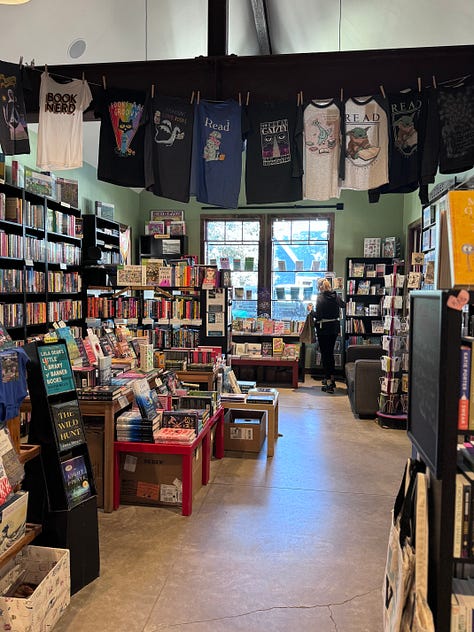
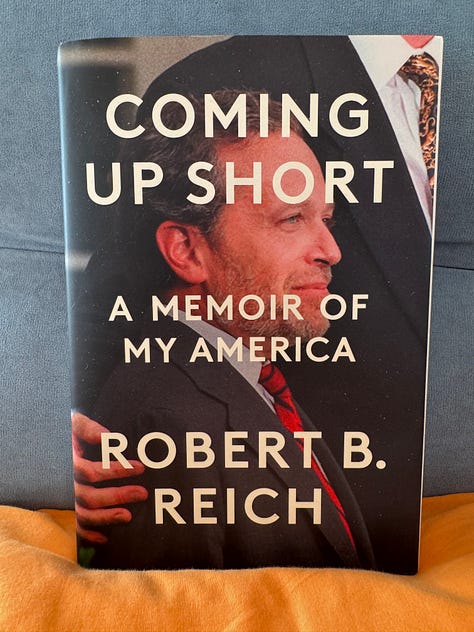
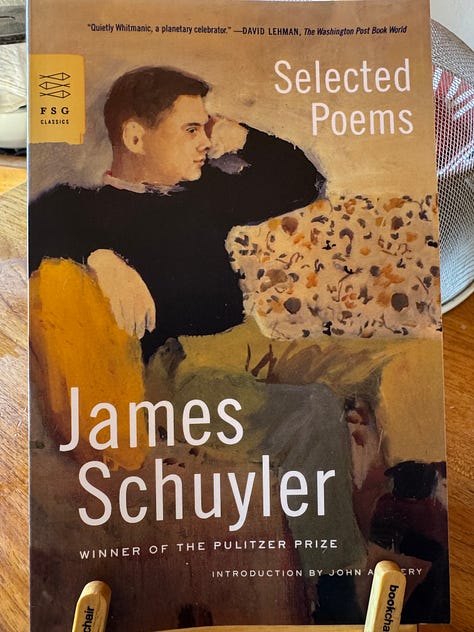
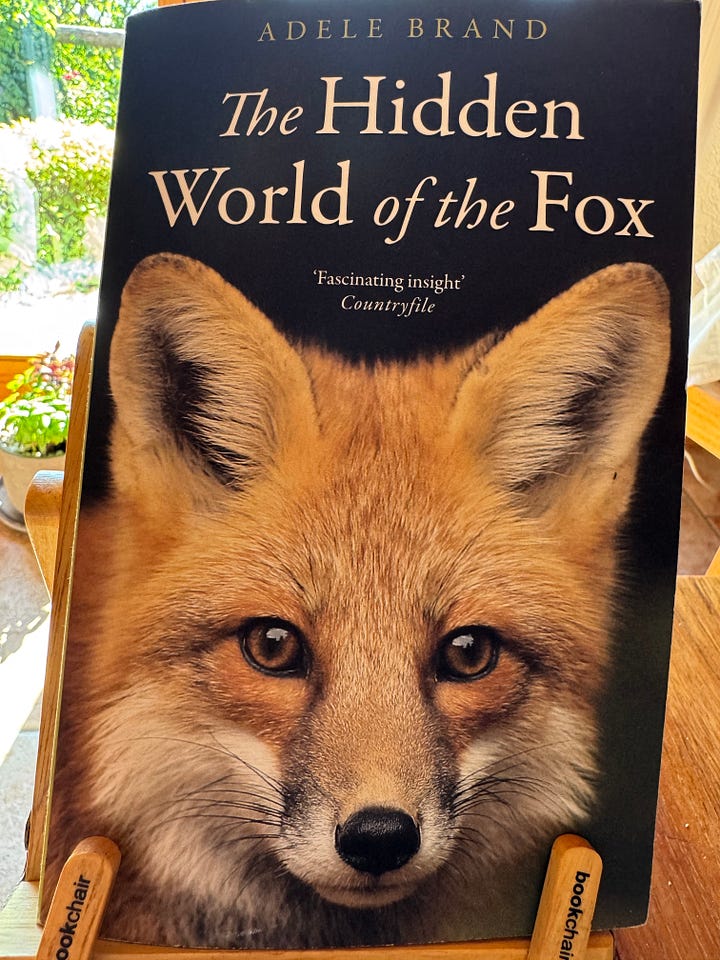
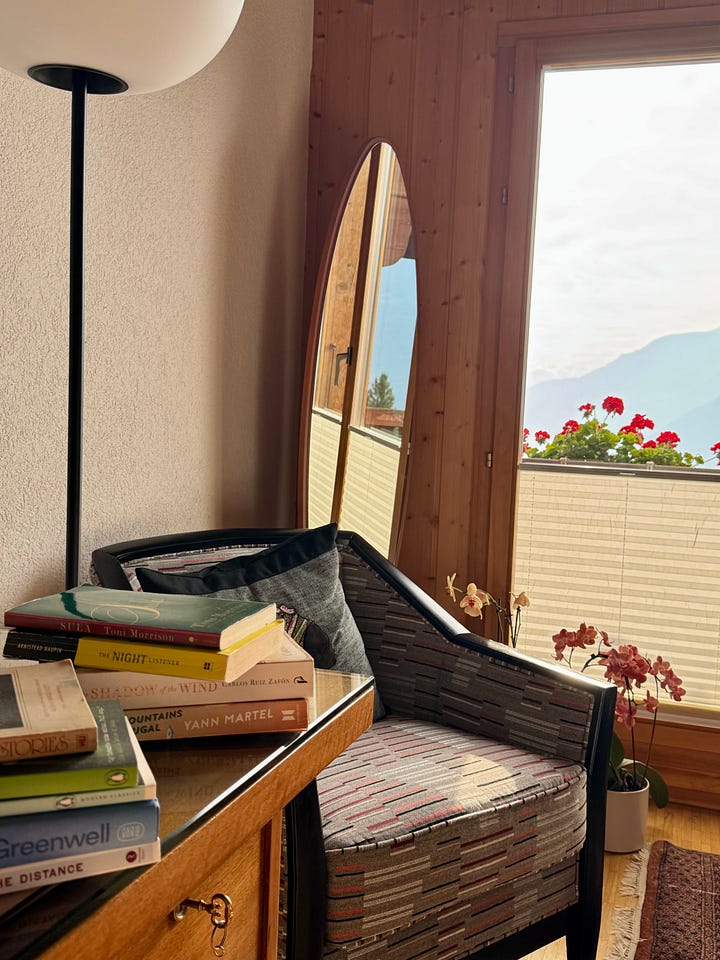
Top left, Townie Books in Crested Butte, Colorado. Bottom right, my top reading corner. Good light, good chair, great view for resting the eyes and great books. Tell someone what you’re reading each week. Make sure if it’s non-fiction that there’s also a fiction book. Here’s what I’m reading this week—what about you? Selected Poems by James Schuyler, Coming up Short by Robert Reich, The Hidden World of the Fox by Adele Brand and Sula by Toni Morrison. Sula is a re-read for me, well worth it.
Join a book club. Or start one. For people who don’t want to make that social commitment, there are plenty of online book clubs. Find one that suits you. I’ve been toying with joining writer Garth Greenwell’s small online club. Barring that, I might join a short course he is offering online, where a group studies one book in six sessions. Try an online search, ask at the local library and ask at a local bookstore. The Swiss Tourism Office has some information on book clubs in English.
Rules are bendable; nobody says you have to read the same way you did when you were younger. For years I read only one book at a time. I’ve learned to juggle several books by creating different reading spaces and times. Reich’s memoir is currently my breakfast table reading, Sula in a corner chair is my bedtime story. I try to take a morning coffee break on the veranda with the fox book. Poems are a wakeup treat and they also help keep me from picking up my phone to scroll the news before I’m even out of bed. Maybe for you, taking a weird just-out novel, about two graduate students looking for their professor “who happens to be in hell”, to a bar (Katabasis, RF Kuang) is what you need, or go to the gym with a 10-hour audiobook, Broken Country by Clare Leslie Hall.
Let yourself mark up the book. I was taught to revere books and take good care of them, in part because most of them were borrowed from the library. If you own yours, I hereby give you permission to use yellow highlighter and to scribble notes in the margin. Very satisfying!
Read a book aloud to someone else. Children are the first choice, as it’s a double whammy, you’re doing yourself a favour and getting someone else started on a good habit for a lifetime. Second choice? old folks. If you know someone whose eyes are not what they once were, suggest you read to them. It doesn’t have to be your 95-year-old parent. Invite someone for tea or coffee or an aperitif and say that for a change you’d like to read aloud for 15 minutes. A short story rather than a novel might be just the thing. Here’s one of my own, with a friend link to make it free to read on Medium. The story is good for anyone over 65. (“My sister stole her first car at age eighty-five. She imagined it would be the last time she would steal one, as she didn’t believe in driving after the age of eighty-eight. The event that triggered the theft was simply stupid from her point of view, although some of the rest of us were incensed for her sake…”)
And most importantly, create at least one reading space in your home. You probably have to share it, some of the time, but declare ownership for your reading moments. It might be the bathtub, or the barstool next to the stove where you cook, a comfy chair or, if you’re prone to snoozing when you read, maybe a straight-backed chair (suggestion: soft cushion for the seat).
Now, back to Charlotte and her web…
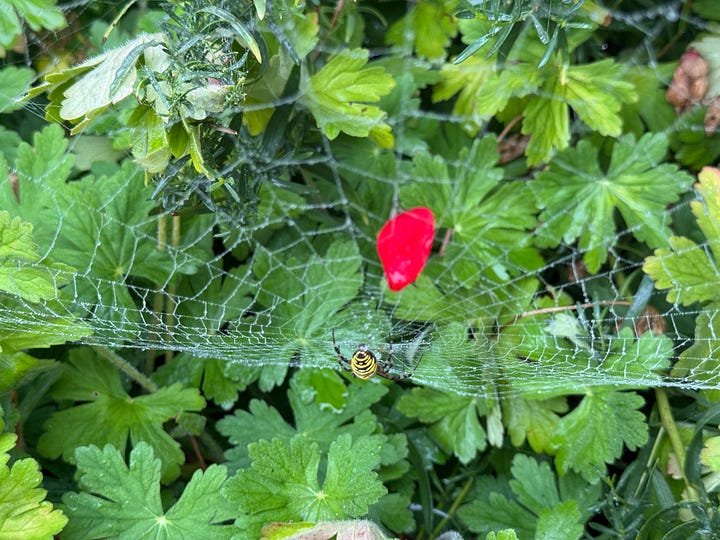

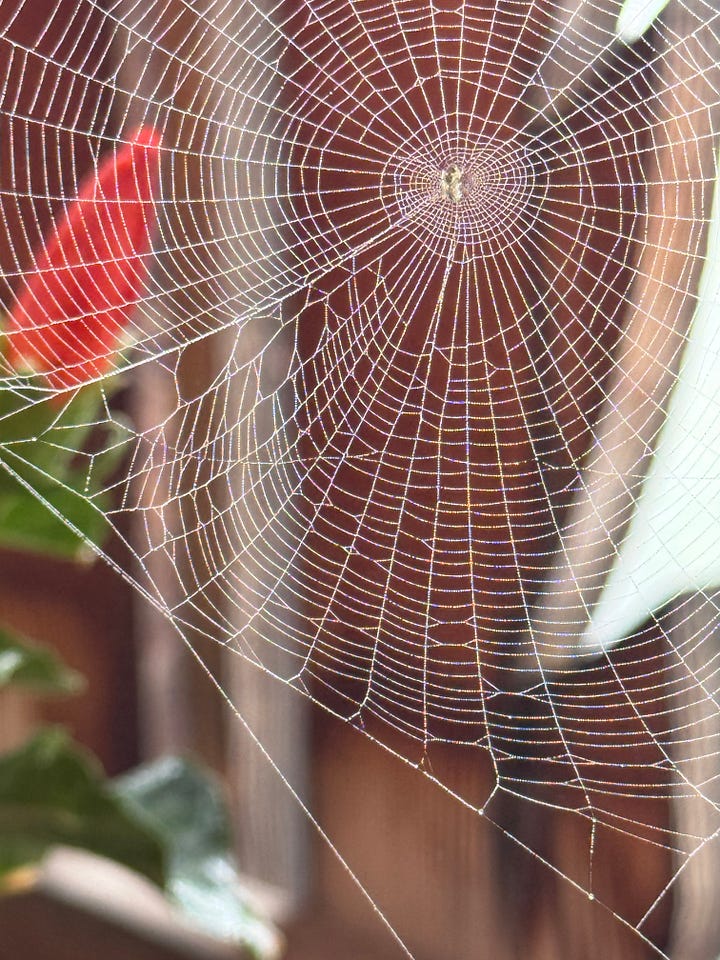
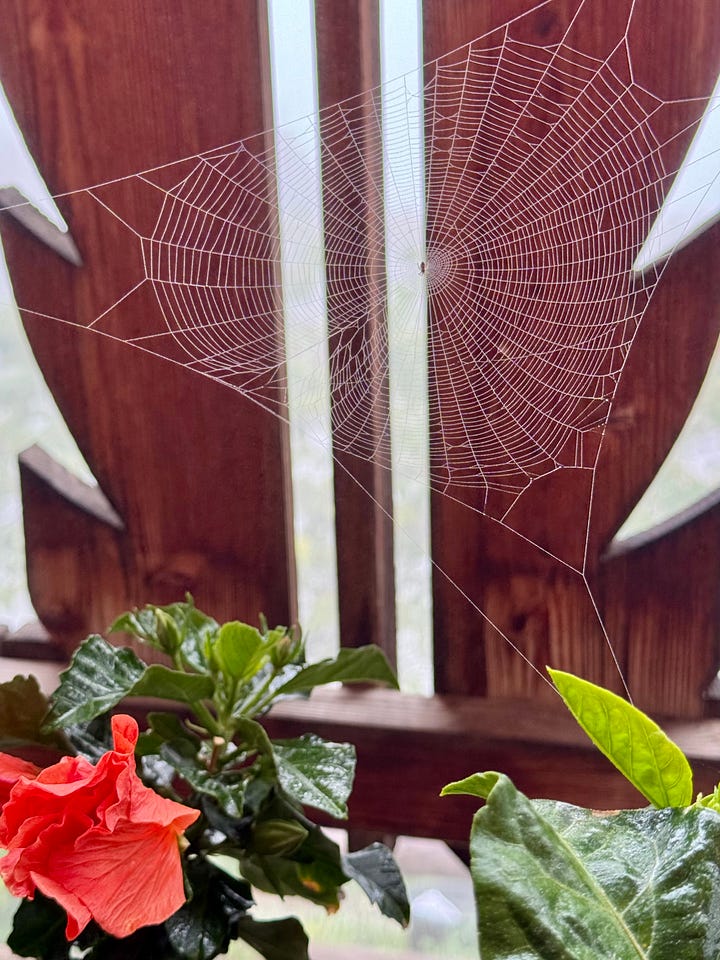



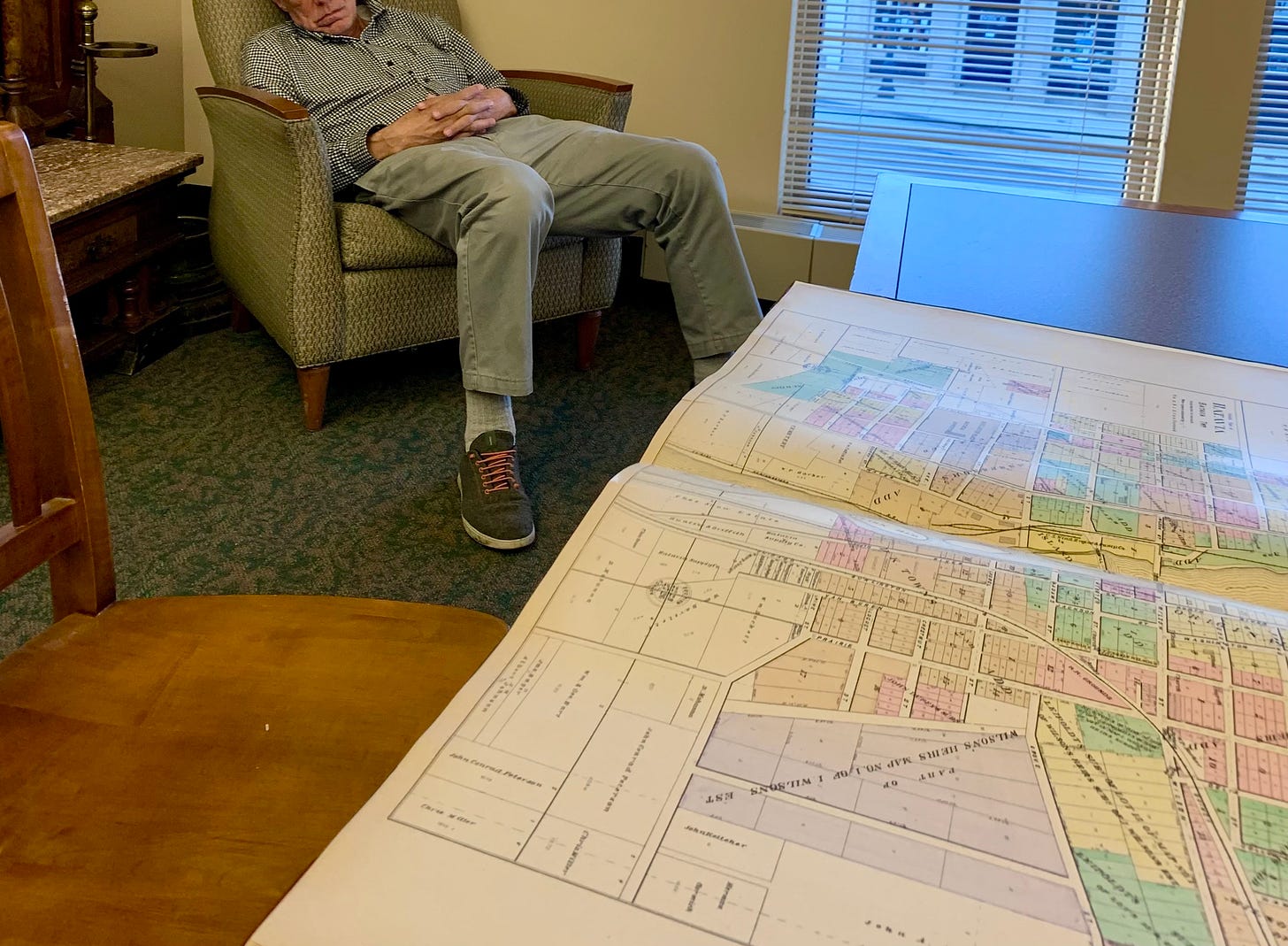
We’re in tandem Ellen! Thank you for this. I am very afraid that the explosion of Substack is one reason some of us read fewer books. But the regime is doing everything possible to stamp out books too. It’s such a fragile ecosystem. If readers don’t step up as you implore, only the garbage will survive.